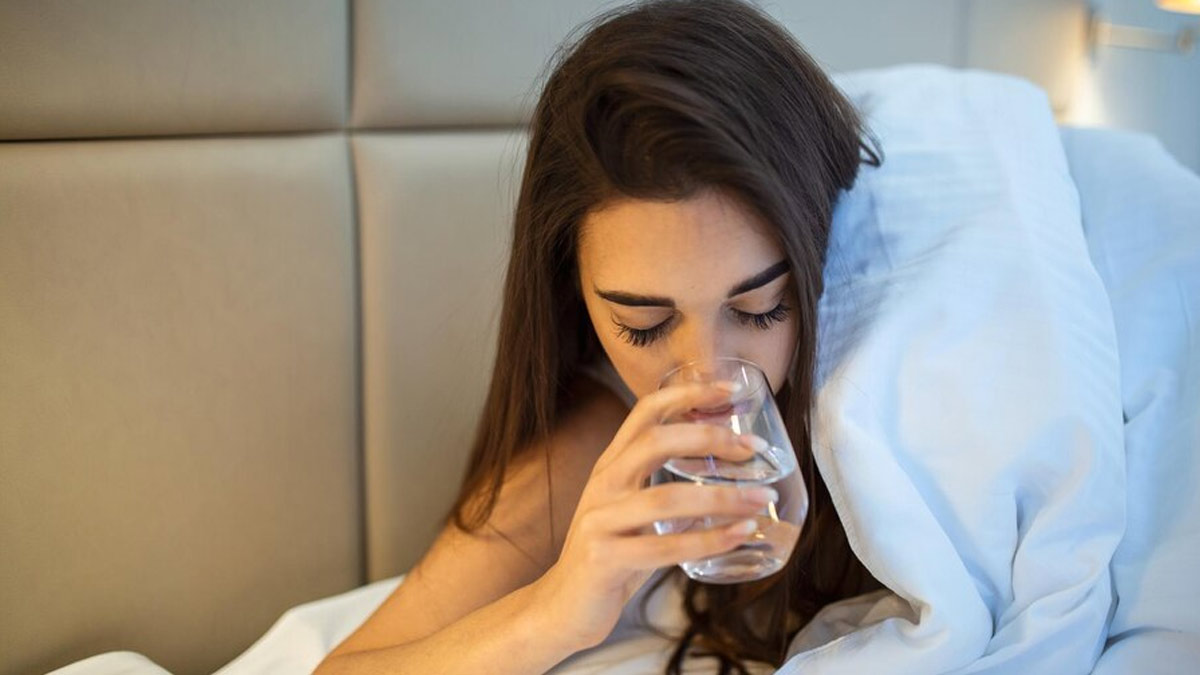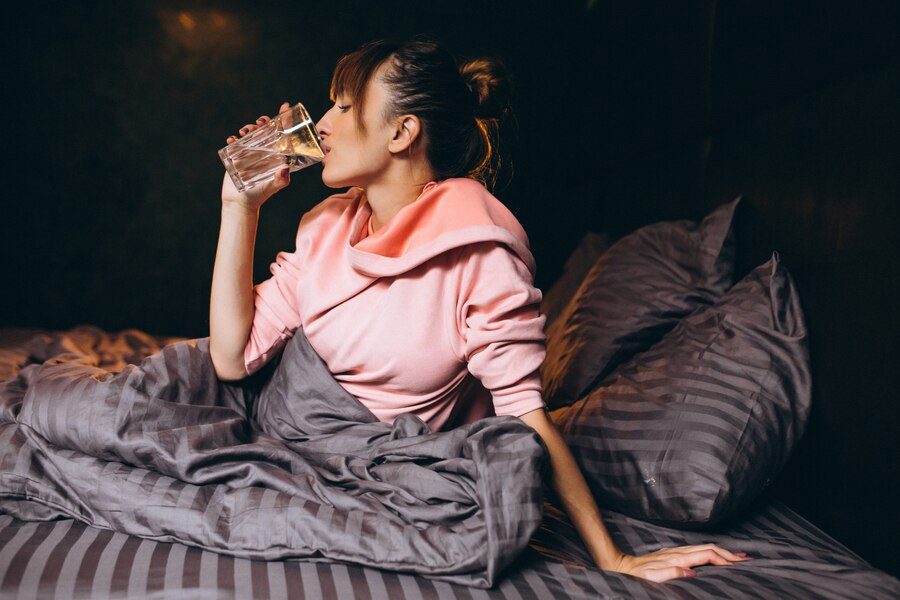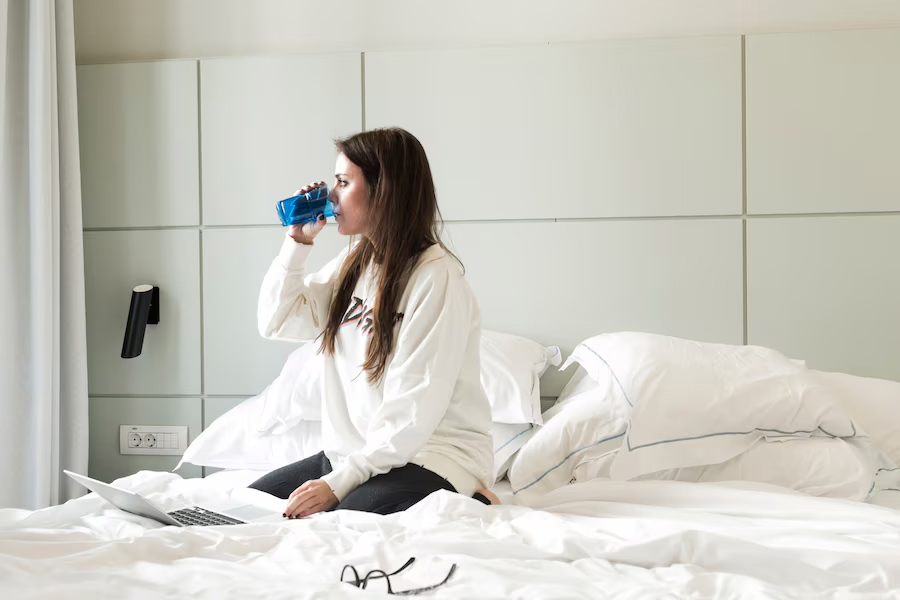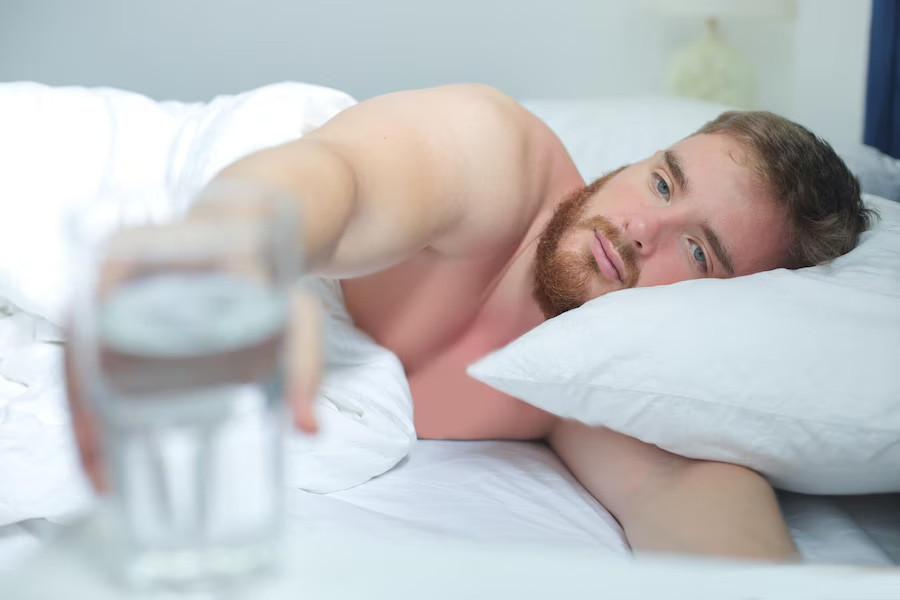
Have you ever woken up in the middle of the night, feeling excessively thirsty and parched? If that's the case, you’re not alone. Many people complain of dry mouth and sudden awakenings due to thirst. This could be due to various reasons, including dehydration and mouth breathing, which are the two most common causes. However, according to Dr Anantha Padmanabha, Senior Consultant, Internal Medicine, Fortis Hospital, Nagarbhavi, Bengaluru, there are other factors that can contribute to excessive thirst, some of which are listed below:
Table of Content:-
Causes Of Excessive Thirst At Night

Medically referred to as polydipsia, extreme thirst can have several causes. It is characterised by a dry mouth, an abnormal urge to drink fluids all the time, and a frequent urge to urinate.
Excessive thirst at night can be due to various factors, says Dr Padmanabha, who shares that dehydration during the day, dry mouth, certain medications, and underlying medical conditions like diabetes, kidney problems, or hormonal imbalances can contribute to this.
Role Of Diet
According to the expert, diet significantly influences thirst levels in people. For instance, consuming salty or spicy foods before bed can dehydrate the body, leading to increased thirst. Additionally, excessive caffeine or alcohol intake can also lead to dehydration and dry mouth. This is why maintaining a balanced diet and limiting these substances before sleep can help manage nighttime thirst, he advises.
How Medications Affect Thirst

It is also important to note that certain medications can cause dry mouth as a side effect.
“Diuretics, often prescribed for blood pressure management, can contribute to fluid loss and increased thirst,” warns Dr Padmanabha.
A 2017 study published in the Journal of the American Geriatrics Society also found that older people who take certain medications are more likely to experience dry mouth. Researchers analysed data from numerous studies and discovered a strong link between dry mouth and medications used for urinary incontinence, depression, and anxiety. Additionally, taking multiple medications was associated with an increased risk of dry mouth.
Therefore, if you suspect your medication is causing the issue, consult your doctor for potential alternatives, says Dr Padmanabha.
Also Read: Undiagnosed Diabetes: From Excessive Thirst To Frequent Urination, Signs To Not Ignore
Watch Out For Sleep Apnoea

Sleep disorders like sleep apnoea, characterised by pauses in breathing, can lead to a dry mouth and increased thirst, according to the Sleep Foundation. Dr Padmanabha explains that it occurs due to mouth breathing, which is common in people with sleep apnoea.
Other common symptoms include:
- Excessive daytime sleepiness
- Loud snoring is often accompanied by gasping or choking sounds.
- Headaches in the morning that may persist for several hours after waking up
- Dry mouth upon awakening
- Restless sleep with periods of wakefulness in the middle of the night
- Irritability or frustration
How To Manage Excessive Thirst At Night?
Dr Padmanabha recommends lifestyle changes to manage excessive thirst that occurs at night. This includes avoiding excessive screen time before bed, which can lead to reduced melatonin production, disrupt sleep, and contribute to dry mouth; managing stress; maintaining a regular sleep schedule; and creating a sleep-conducive environment for better sleep and to reduce nighttime thirst.
Also watch this video
Read Next
Eye Safety: What Are The Dangers Of Sleeping With Contact Lenses And Neglecting Expiry Dates?
How we keep this article up to date:
We work with experts and keep a close eye on the latest in health and wellness. Whenever there is a new research or helpful information, we update our articles with accurate and useful advice.
Current Version